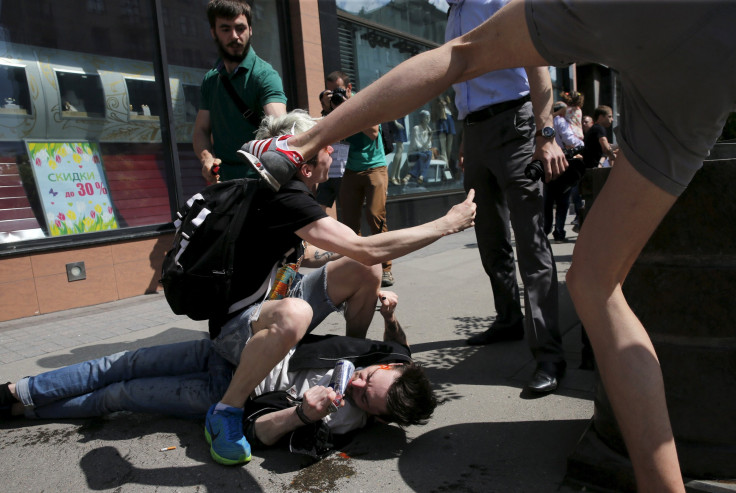LGBT Rights In Russia: European Court Supports Gay Activists, Says Moscow’s ‘Gay Propaganda’ Law Unfair

The European Court of Human Rights ruled Tuesday that a Russian law banning the promotion of homosexuality is discriminatory and encourages homophobia. The court also said the law breached European treaty rules on freedom of expression.
"In today’s Chamber judgment 1 in the case of Bayev and Others v. Russia (application nos. 67667/09, 44092/12 and 56717/12) the European Court of Human Rights held, by six votes to one, that there had been: a violation of Article 10 (freedom of expression) of the European Convention on Human Rights, and a violation of Article 14 (prohibition of discrimination) in conjunction with Article 10 of the Convention," according to the press release issued by the Registrar of the Court.
The case was brought by applicants Nikolay Bayev, Aleksey Kiselev and Nikolay Alekseyev who are all Russian nationals and gay activists.
Read: US Census Bureau Abandons Plans To Count LGBTQ Americans In 2020 Census
Regarding the gay propaganda law — adopted in Russia in 2013 banning the spreading of "propaganda of non-traditional sexual relations" among minors — the court said although the laws in question were targeted toward minors, the "limits of those laws had not been clearly defined and their application had been arbitrary."
The court also found that the purpose of this law and the way it had been applied in the three applicants' case was discriminatory and served no legitimate public interest.
In June 2013, Russia's parliament passed a federal law banning gay "propaganda" amid a Kremlin push to enshrine deeply conservative values. The law made it illegal to see heterosexual and gay relationships as equal. The law also made distribution of materials on gay rights illegal and introduced fines for individuals and media groups found guilty of breaking the law, as well as special fines for foreigners.
The anti-gay law was widely criticized by marginalized liberal sections in Russia as well as by human rights communities with some even calling the situation in the nation the worst human rights climate in the post-Soviet era, the Guardian reported.
Read: Concentration Camps For Gay Men Open In Chechnya, Reports Say
In May, Russian police detained about 20 gay rights protestors who were helping gay men escape from the southern province of Chechnya, where they face discrimination such as abuse. The protesters held a demonstration on the sidelines of a May Day parade in St. Petersburg, Russia’s second-largest city. According to footage, some protesters lay on the pavement draped in a rainbow flag and the flag of Chechnya, while others carried placards which objected to the mistreatment of gay men in Chechnya, the New York Times reported.
According to a World Report 2017 by Human Rights Watch, which analyzed discriminatory policies against the LGBT community in 2016, it said authorities continued to implement policies and laws unfair to lesbian, gay, bisexual, and transgender people. In March 2016, police found journalist and theater critic Dmitry Tsilikin dead in his St. Petersburg apartment from stab wounds. A week later, when the attacker was caught by police, he confessed he planned to blackmail Tsilikin about his homosexuality, but killed him during a confrontation.
© Copyright IBTimes 2024. All rights reserved.












